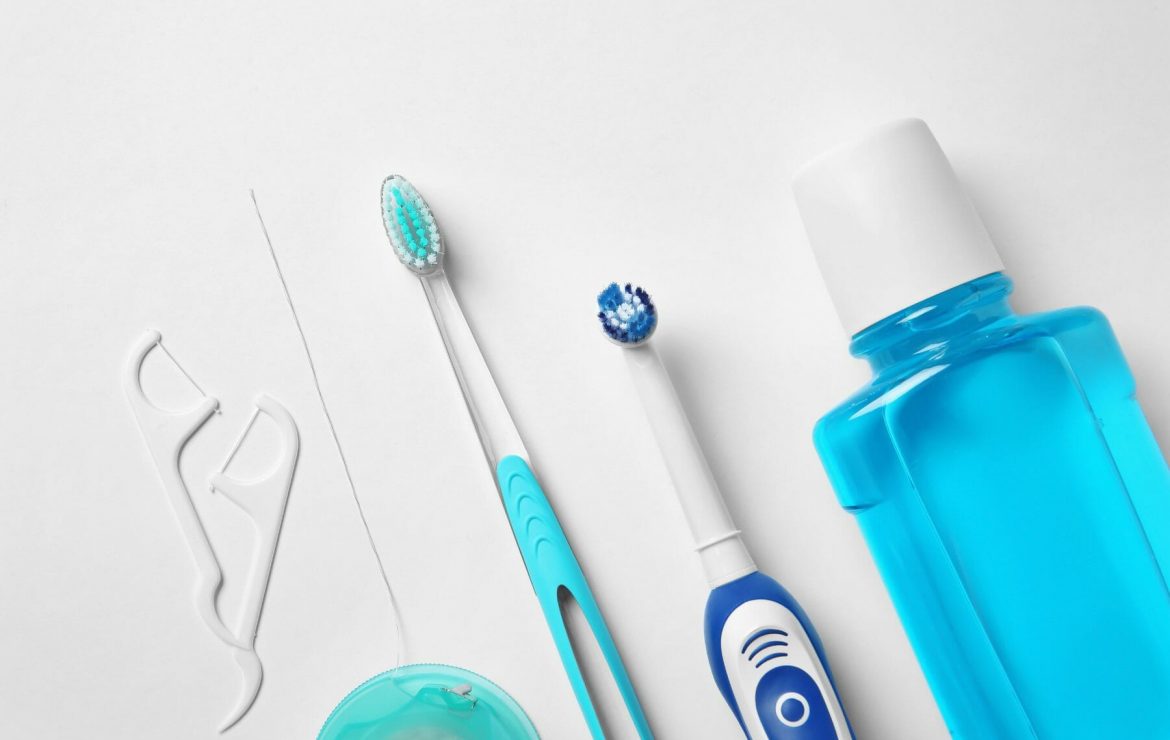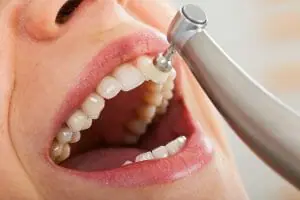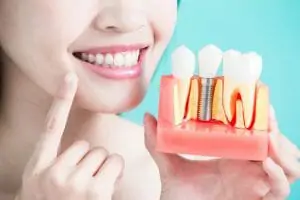9 Common Dental Problems Explained

Your oral care and hygiene are so important. Not only do they affect your dental health, but your entire body. At O’Connor Dental Care, we take pride in treating our patients like family. It is part of our promise to everyone who walks through our doors. Our experienced staff is friendly and professional, and we make your oral/dental health our #1 priority.

Speaking of appointments, below you will find nine of the most common dental problems addressed. Perhaps you have been afflicted with one or more in the past, and we have treated you. Otherwise, if any of these dental problems are new to you, learn more about them. Being educated and prepared will make the visit go smoother, because you’ll know what to expect.
1. Do I Have a Cavity?
Cavities are quite common. Holes can form in the teeth due to oral bacteria buildup. It is important to fill these holes, so they do not further deteriorate. Dental fillings will also strengthen the teeth that have been compromised. Without dental fillings, the tooth can crack, crumble or fall out altogether. You may have a cavity if you are experiencing:
- Pain
- Tenderness
- Difficulty chewing
- Loosened tooth
- Food getting stuck in the tooth
We fill your cavity with composite resin fillings, which look like your natural tooth color. During the process, you will be numbed, so you do not feel pain.
2. My Teeth Are Not as White as They Once Were… What Can I Do?
Dull, discolored, gray, yellow or stained teeth are aesthetically unappealing. We all want those “pearly whites” we see on the covers of magazines. There are over-the-counter products that can improve your smile, but these are not usually as powerful as what we can offer you to take home from our office.
While we do not do in-office teeth whitening, we can provide you with highly effective whitening trays that you can use yourself at home. They contain a peroxide-based bleaching agent in a higher concentration than most OTC products.
Depending upon your goals, we will give you a solution to achieve the level of whiteness you desire. Please know that every patient’s results will differ, but you can expect a whiter set of teeth once the process is complete.
You may experience sensitivity to the whitening process if:
- You have tooth decay
- You have sensitive teeth
- You have gum disease
- Your teeth appear translucent
Note that some medications can stain your teeth. Talk to your doctor about this issue.
Keep your teeth white by:
- Avoiding/limiting staining foods and drinks, such as tomato-based sauces, chocolate, coffee and wine
- Cutting out tobacco products
- Maintaining good oral hygiene practices – brushing, flossing and regular dental cleanings
3. Do I Have Sleep Apnea?
Are you having trouble sleeping or staying asleep? Perhaps you are tired during the day. You may be suffering from a sleep disorder called obstructive sleep apnea (OSA).
When patients have OSA, their breathing is irregular while they sleep, causing disruptions, shallow breathing and gasping for breath. Snoring and choking are common because the air passage is affected as a result of the muscles in the throat collapsing.
Not only does OSA affect sleep and alertness during the day, but it can lead to other medical problems, such as:
- High blood pressure
- Obesity
- Stroke
- Heart disease
- Diabetes
- Glaucoma
- Depression
If you believe you are afflicted with OSA, talk to your dentist. You may benefit from an oral appliance, which will keep your air passageway open. If you have a more severe case, a CPAP device may be required. You’ll hook yourself up to the machine at night for a sounder sleep and peace of mind.
4. Could I Have TMJ?
Temporo-Mandibular Joint Disorder (TMJ) affects the jaw where it connects to the skull. The most common concerns related to TMJ include:
- Pain in the jaw
- Jaw stiffness/immobility
- Difficulty chewing or speaking
- Clicking of the jaw
- Locking of the jaw
You may get TMJ due to injury to the jaw or teeth, misaligned teeth or other orthodontic problems. TMJ may be exacerbated if you clench or grind your teeth (bruxism). Other reasons that could cause TMJ include:
- Stress
- Poor posture
- Nail biting
- Gum chewing
- Arthritis
Your dentist may fit you with a mouth guard/ bite guard to alleviate your symptoms. There are also medications that can help, as well as physical therapy. If your condition is due to an orthodontic issue, perhaps you will be a good candidate for braces.
5. What Is Periodontal Disease?
Periodontal disease is another name for gum disease. When you experience tooth decay, it can spread to the gums and lead to infection. This can go even further and spread to the bones. It is important to maintain good oral hygiene so that the teeth and gums remain healthy.
When you are in for your general exam, we will check your gums for signs of periodontal disease. The most common symptoms include:
- Abscesses in the gums
- Loose teeth
- Gum pain, tenderness
- Receding gums
- Bleeding gums
- Bad breath
- Pockets along the gum line
Periodontal disease can lead to tooth loss. It also can spread to the rest of the body, causing other infections.
To treat periodontal disease, we do a deep cleaning called scaling and root planing. This removes plaque and tartar buildup beneath the gum line. The gums will heal, and the infection will go away.
Keep gums healthy by:
- Brushing and flossing daily
- Keeping up with your twice-yearly general dental exams
- Eating healthfully – limit sugary foods and beverages
6. Why Might I Need a Root Canal?
If your dental decay has traveled to the dental pulp inside of the tooth, a root canal may be the best solution to save the tooth. The pulp is made up of tissues, blood vessels and nerves. If they get infected, you can lose your tooth or experience periodontal issues. Decay may be caused by a cavity, crack in the tooth or a fracture.
If you need a root canal, the pulp is removed to eliminate the infection. The removed area is filled in with a special material to stabilize the tooth.
You may need a root canal if:
- You have pain or tenderness along the gum line
- You have severe tooth pain
- You have sensitivity or pain when eating or drinking hot or cold foods and beverages
- Your tooth is discolored or darkened
During your root canal procedure, you will be anesthetized, so you will remain comfortable throughout.
7. What Can I Do About My Imperfect Teeth?
Teeth that are:
- Chipped
- Cracked
- Broken
- Discolored
- Too long/too short
- Spaced far apart
- Misshaped….
… can be fixed to look more appealing via bonding or veneers. Bonding uses a tooth-colored resin, which is cured to the teeth for a quick-and-easy fix for minimal restorations. The process takes less than an hour in the office, and the results look natural, last long, and are durable.
Veneers, a more permanent solution, are made of super thin material – either porcelain or resin, which is shaped to suit your mouth after impressions are taken. They are affixed to the front of the teeth, look totally natural, and can last up to 15 years.
Care for both your bonding and veneers as you would your natural teeth.
8. I Have Bad Breath. Why May This Be?
There are a number of reasons why you may be experiencing foul breath.
- Poor dental hygiene – lack of brushing, flossing
- Your diet
- Certain medications
- Dry mouth/dehydration
- Tooth decay
- Gum disease
- Illness
If you find that your breath is unpleasant, discuss it with your dentist to find a solution.
Do you need to book an appointment at O’Connor Dental Care? Fill out this online form or call us at (859) 340-8863.
We look forward to treating you.











